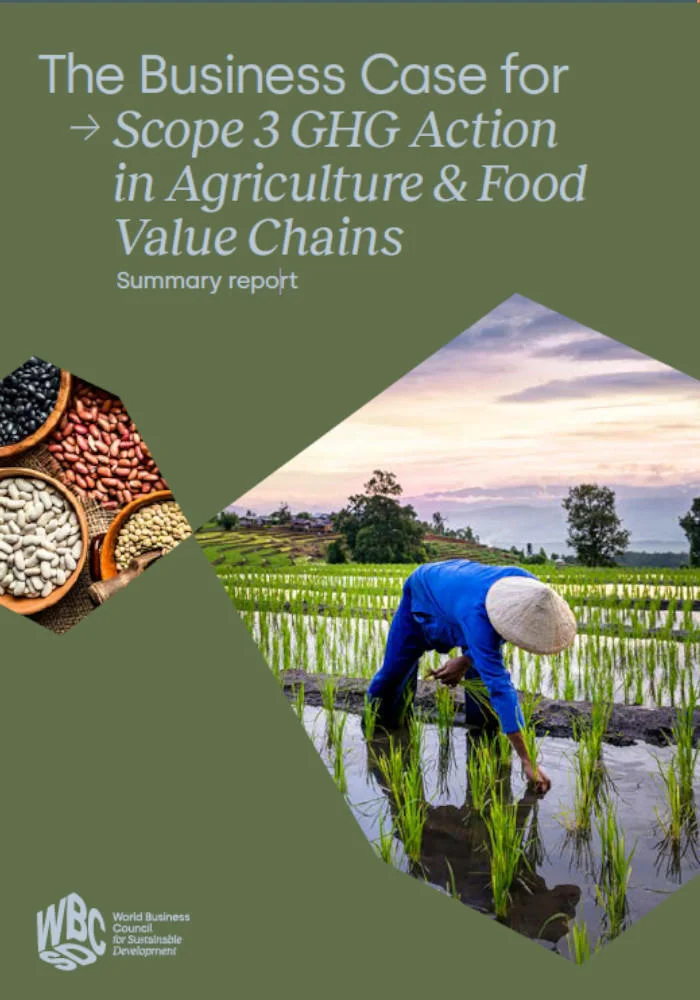The Business Case for Scope 3 GHG Action in Agriculture & Food Value Chains
Published: March 26, 2024

Transitioning the agriculture and food sector to net zero by 2050 presents a range of business opportunities for actors across the value chain. Based on workshops with WBCSD members, this summary report showcases the business case for individual companies in the sector to take action to decarbonize in line with the Paris Agreement and the importance of collaborative action to mobilize finance to implement scope 3 activities.
This report supports the Future Fit Food and Agriculture series from the Food and Land Use Coalition. This series aims to support food and agriculture companies to 1) understand the implications of current and emerging voluntary standards and regulation for climate and nature, and 2) comprehend the financial costs and benefits of implementing land-based GHG mitigation measures. Building on the findings of the Food and Land Use Coalition series, this report provides perspectives and case studies of different value chain actors regarding the financial costs and benefits.
WBCSD is working with members and partners in the agrifood sector to accelerate in value chain interventions and the flow of much-needed investment – as summarised in our scope 3 action agenda for the agrifood sector.